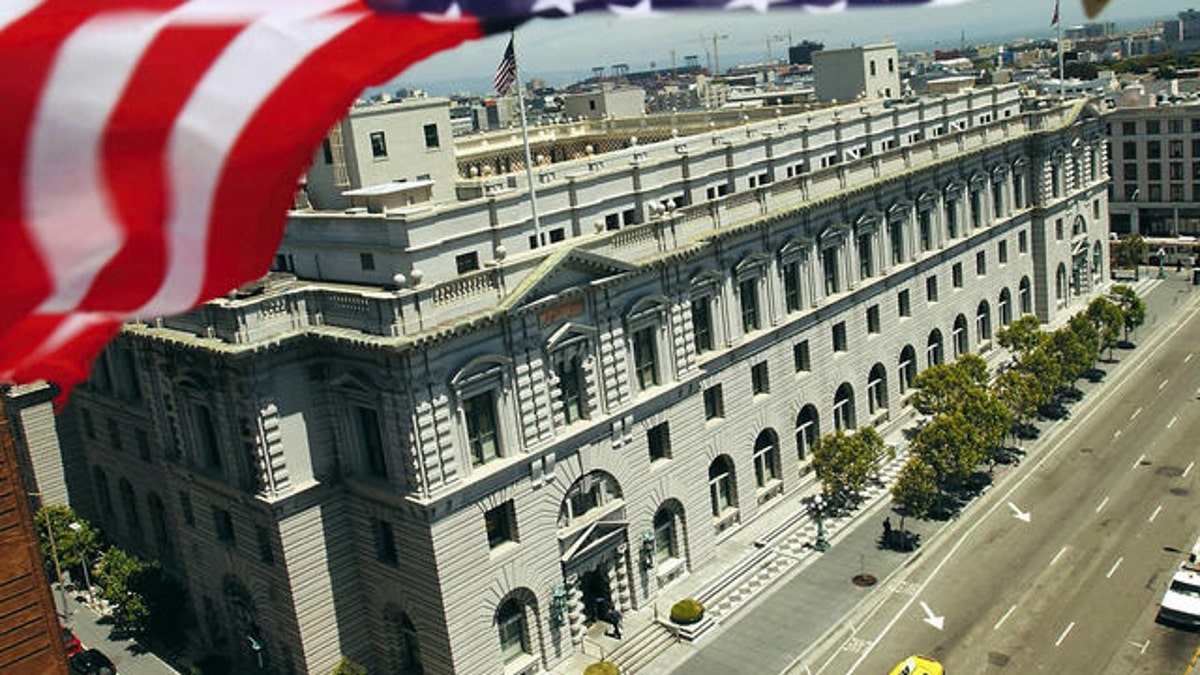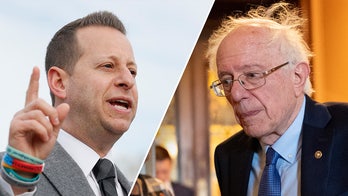
The California Supreme Court building in San Francisco. (AP)
For judges in California, talent and track record may count as much as who they sleep with.
A new state sanctioned survey asked judges to disclose whether they are gay, straight or transgender. While 40 percent of magistrates refused to answer the question, some argue the findings will lead to the appointment of more homosexuals to the Golden State's bench.
The Judicial Applicant Data Report collects demographic information on California's 1,600 trial court judges as well as dozens of justices on the appeals and supreme court.
The Administrative Office of the Courts, which administers the online survey, recently released aggregate data by jurisdiction. The survey is voluntary and, while names are required on the forms, individual answers are kept confidential.
Alongside questions about gender, race and ethnicity, the survey now asks whether judges identify as a man or a woman, and if they're gay. Supporters applaud the new law, SB 182, known as the Judicial Applicant and Appointment Demographics Inclusion Act, calling it "essential in creating a more diverse judiciary."
Critics say the question, much like asking about religious preference and voting records, is immaterial to a judge's qualifications and ability to weigh evidence. They say the survey amounts to an invasion of privacy, and a threat to fair rulings from the bench.
"This is an outrageous violation of the total concept of blind justice and equality for all," says Brad Dacus, president of the Sacramento-based Pacific Justice Institute.
Dacus says appointments should be based solely on competence and experience. "We should work hard to oppose bias on the bench and off the bench when it comes to the selection of judges, and the criteria by which they are evaluated. That's what true equality is all about, and that's what people want when it comes to presiding over their cases in a courtroom."
But gay activists maintain California's judiciary needs to be more diverse.
"Equality California," which spearheaded the new law, says the 2009 survey showed women represented just 34 percent of applications, and only 28 percent of the total number of judges appointed by the governor. In addition, the group says, among those who stated their race and ethnicity, the percentages of Asian, African American, and Latino judges fall well below 10 percent, while white judges make up nearly three-quarters -- 73.6 percent -- of the judiciary.
Equality California argued it is vital that demographic reports consider gender identity and sexual orientation to know "how the lesbian, gay, bisexual and transgender community is being represented in the judiciary. While LGBT people represent a sizable and important part of the state, their representation in the judicial branch of government is virtually unknown."
That is, until now. According to the findings, of those judges who responded to the sexual orientation question, just over 1 percent said they were gay or transgender.
Equality California was not discouraged by the results.
"While the number of gay or transgender judges remains proportionally lower than the gay and transgender population of California, it's exciting to see that we do have several out judges serving throughout the court," says Equality California's Rebekah Orr.
"It's an important benchmark for us to have as we continue to work to make the bench more diverse and better reflect the diversity of the communities it serves," she says.
She argues that asking judges if they're gay or transgender will "provide us with a better picture of who they are, where they've come from, what they're experience is and what they bring to the bench."
Fox News spoke to several judges who called the whole thing a waste of time and refused to answer any of the questions.
The Honorable Socrates "Pete" Manoukian of Santa Clara County Superior Court wondered "why is a judge's ethnicity important? It's supposed to be unimportant!" He called the additional questions about gender identity and sexual preference "offensive."
But other judges felt the optional survey is fairly harmless, and point out the governor is not obligated to use the findings when making judicial appointments.
Former California Supreme Court Justice Joseph Grodin, who was ousted by voters in 1987, says while diversity is crucial, good judges should be open minded, regardless of their sexual preference.
"They may bring to bear different world views, different values, depending upon their own experiences and I think that's valuable and important, but that doesn't mean they're not fair-minded," Grodin said.
But after California's voter approved ban on same-sex marriage was overturned by a gay judge, critics see a political agenda.
"This legislation is a blatant attempt by liberal activists to pack the court with judges to give them things like homosexual marriage, things they otherwise would not be able to achieve at the ballot box," Dacus said.
Except in rare cases where judges are elected, judicial appointments in California are up to Gov. Jerry Brown -- a staunch supporter of gay rights, including same-sex marriage. With 64 vacant judgeships in courts across the state, some worry the inclusion of this new, highly personal data will encourage bias and discrimination on the bench, defeating the very notion of justice for all.




